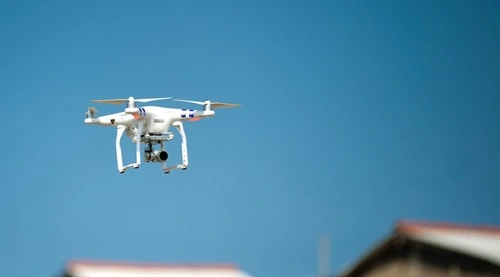No, it is not inherently illegal to fly a drone over private property in the United States. However, this depends on the specific circumstances and applicable laws. Federal regulations, managed by the Federal Aviation Administration (FAA), govern airspace use, while state and local laws address privacy, harassment, and trespassing concerns. Understanding the intersection of these laws is critical for drone operators and property owners.
Federal Regulations Governing Drone Use
1. FAA Authority Over Airspace
- The FAA governs all navigable airspace in the United States, including the air above private property.
- Drone operators must follow FAA rules, including:
- Operating below 400 feet in uncontrolled airspace.
- Maintaining visual line-of-sight with the drone.
- Avoiding no-fly zones, such as near airports or national security areas.
2. Part 107 Rules for Commercial Use
- Operators flying drones for commercial purposes must be certified under FAA Part 107, which includes restrictions on flying over people and private property without proper waivers.
3. Recreational Drone Use
- Recreational pilots must comply with FAA safety guidelines, such as notifying nearby airports if flying within five miles.
State and Local Laws Addressing Privacy and Trespassing
1. Privacy Concerns
- Flying a drone over private property becomes a legal issue if it invades someone’s privacy, such as capturing images or videos without consent.
- States like California and Texas have specific laws against using drones to record or photograph individuals in private spaces without permission.
2. Trespassing Laws
- While the FAA controls airspace, some states interpret drone flights at low altitudes over private property as trespassing.
- For example:
- Oregon: Property owners can sue drone operators if drones fly below 400 feet and interfere with their use of the land.
- Florida: Has laws prohibiting drones from surveillance of private property without consent.
3. Harassment and Stalking
- Using drones repeatedly or aggressively over someone’s property can lead to harassment or stalking charges, even if FAA regulations are followed.
Legal Consequences of Flying a Drone Over Private Property
1. Fines and Penalties
- Violating FAA rules can result in fines of up to $1,500 for recreational operators and $32,666 for commercial operators.
- State-level violations, such as privacy breaches, may carry additional fines or civil penalties.
2. Civil Lawsuits
- Property owners can file lawsuits for trespass, nuisance, or invasion of privacy if drone operations cause harm or disruption.
3. Drone Confiscation
- In extreme cases, law enforcement may seize drones used in illegal activities, such as harassment or spying.
Tips for Legal and Responsible Drone Use
1. Respect Privacy
- Avoid hovering over private property or filming without permission.
- Fly at altitudes that minimize disturbance to property owners.
2. Check Local Laws
- Research state and local ordinances, as they may impose stricter rules than the FAA.
3. Use Technology Responsibly
- Use geofencing technology to avoid restricted areas.
- Equip drones with identification features to comply with Remote ID requirements.
Related FAQs
Q1. Can I fly my drone over my neighbor’s backyard?
Ans: It depends. While FAA rules allow flight in navigable airspace, state laws may consider it trespassing or an invasion of privacy if done without permission.
Q2. Who owns the airspace above private property?
Ans: The FAA regulates airspace, but property owners have rights to airspace for reasonable use, typically below 400 feet.
Q3. Can a property owner shoot down a drone?
Ans: No, shooting down a drone is illegal under federal law, as drones are classified as aircraft.
Q4. Do I need permission to fly a drone over private property?
Ans: Permission is not required by the FAA but may be necessary under state privacy or trespassing laws.
Q5. What happens if I record someone on their property with a drone?
Ans: Recording someone on private property without consent can lead to legal action under state privacy laws.
Conclusion
Flying a drone over private property is not inherently illegal but requires compliance with FAA regulations and state and local laws. While federal law governs airspace, property owners have certain rights that protect their privacy and prevent trespassing. Drone operators should stay informed of applicable rules and fly responsibly to avoid legal consequences.


